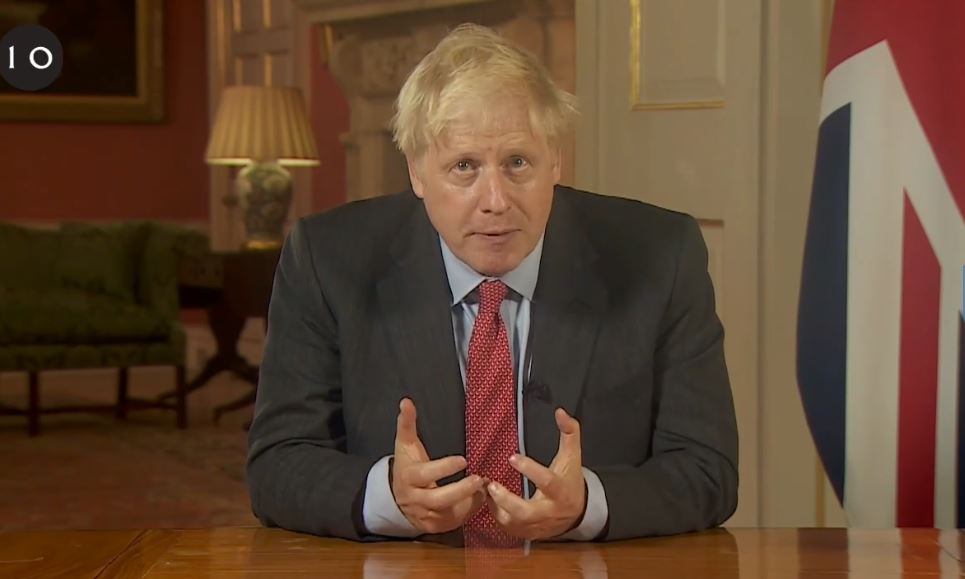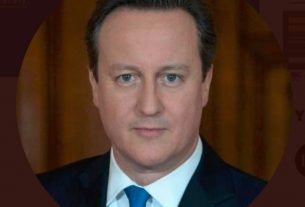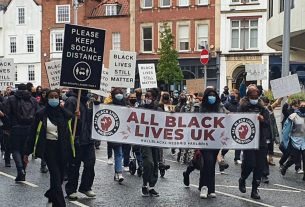The British army has been put on notice to deploy on British streets by the prime minister who today announced a tightening of restrictions to try and curb the spread of Covid-19.
Boris Johnson said the country is at a “perilous turning point” in the fight against the coronavirus and in this evening’s television address to the nation warned tighter rules may be imposed if laws in place are not followed.
“The struggle against Covid is the single biggest crisis the world has faced in my lifetime,” said Johnson, stressing, “we must take action now” while warning the new restrictions could be in place for the next six months.
‘Tougher package of measures’
The “tougher package of measures” includes a U-turn on the message given by the government three weeks ago to office workers who are now, once again, being told to “work from home”, having been told at the start of September to “get back to the office”.
Pubs and restaurants will have to close at 10pm and will be restricted to a table service only. Face masks will be compulsory for all staff and non-seated customers. The ‘rule of six’ is extended to indoor sports teams; and, weddings have been limited to 15 guests.
Penalties for not complying with the restrictions have increased with the fine for not wearing a mask doubling to £200 for a first offence.
Police will be tasked to impose the rules with “the army to backfill if necessary” said Johnson – a statement that caused #MartialLaw to trend on Twitter (coinciding with the 48th anniversary of martial law being declared in the Philippines by President Marcos).
‘We didn’t vote for this’ – Farage
Brexit party leader Nigel Farage was among those posting his dissent, tweeting: “The PM says we are a “freedom loving country”, but will fine you £10,000 and send the army in if he likes. This is authoritarian — I don’t believe his promises on testing or the competence of the government. We didn’t vote for this.”
Richard Tice – Brexit party chair and former MEP – adopted Donald Trump’s use of the caps-lock, to tweet: “BORIS THE BULLY: he’s effectively threatening MARTIAL LAW here in the U.K. if we don’t follow his orders. NO, NO, NO”.
The prime minister has not ruled out a second national lockdown, and in the Commons earlier, Sir Keir Starmer told MPs that would be a “huge failure of government, not an act of god”.
The Labour leader said he supports the new restrictions because they are “necessary, but not inevitable”, and pointed to the government’s failures on the test-and-trace system and overall handling of the pandemic.
Starmer had earlier given his first address to the Labour Party conference as leader – doing so with a speech delivered to camera in Doncaster and broadcast online to Labour party members. Having rushed back to Westminster for the PM’s statement, Starmer asked Johnson what financial support will the government make available for families and businesses impacted by the new restrictions.
Scotland, Wales and Northern Ireland announce new measures
Official figures show 4,926 new cases in the UK – the highest daily tally recorded since May, and the PM’s address was mirrored in Scotland, Northern Ireland and Wales where the first ministers announced new measures for their nations.
Nicola Sturgeon told the Scottish Parliament that different households will not be allowed to meet up indoors from Friday, while children under 12 are exempt from rules limiting numbers permitted for outdoor meetings.
Like Sturgeon earlier, Johnson reminded the nation this evening that “we are in a much better place now, compared to March” with PPE stocks and Nightingale hospitals among the areas where the UK is better prepared.
Today’s announcements follows Saturday’s protests in Trafalgar Square against restrictions in place to combat Covid-19 that saw police clash with demonstrators. It also follows the Demos poll published earlier this month that showed coronavirus rules and restrictions are proving even more divisive than Brexit.
At the start of September civil liberties campaign group Liberty warned that the right to protest in the UK is under threat from tightening restrictions.




